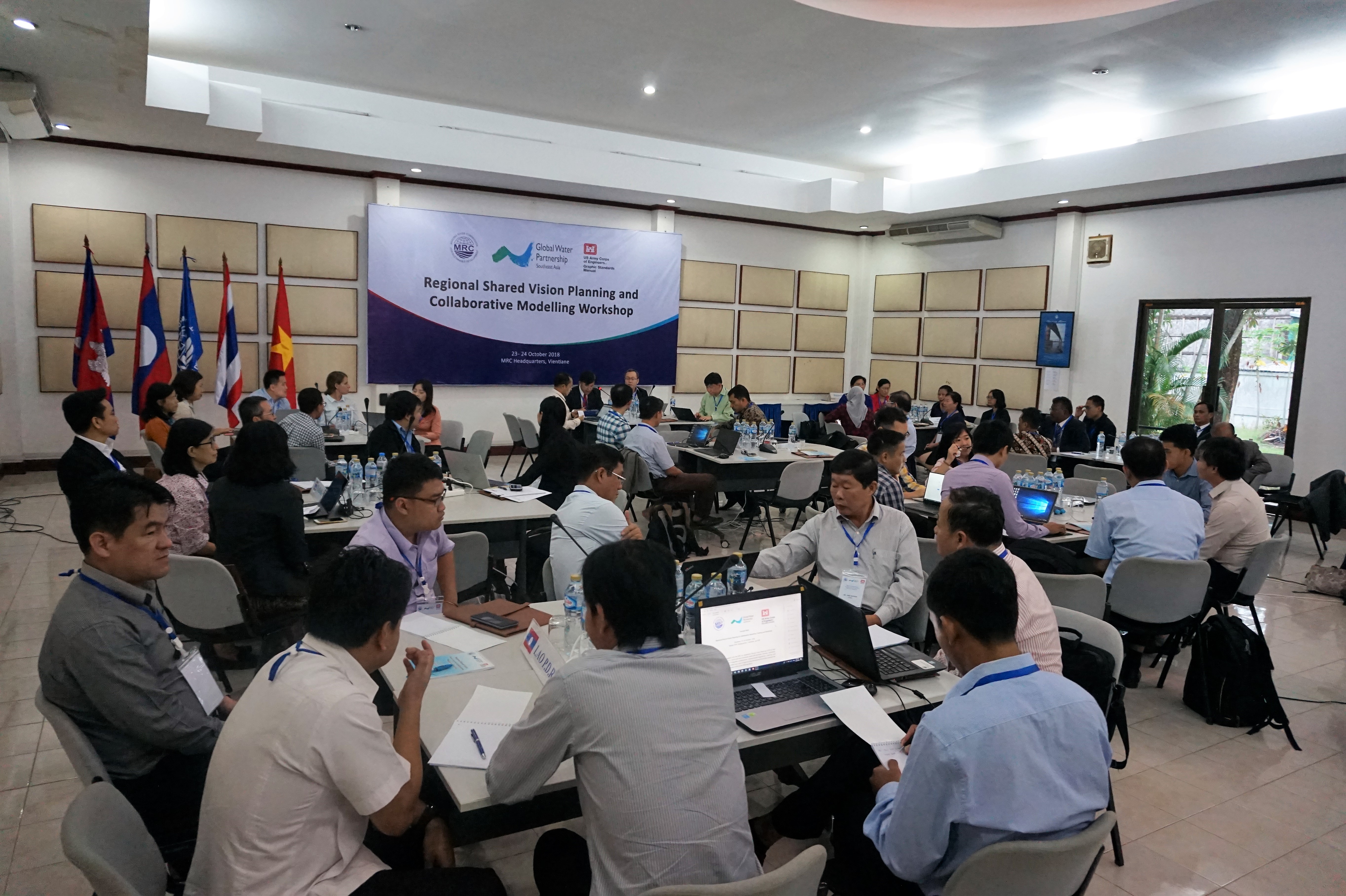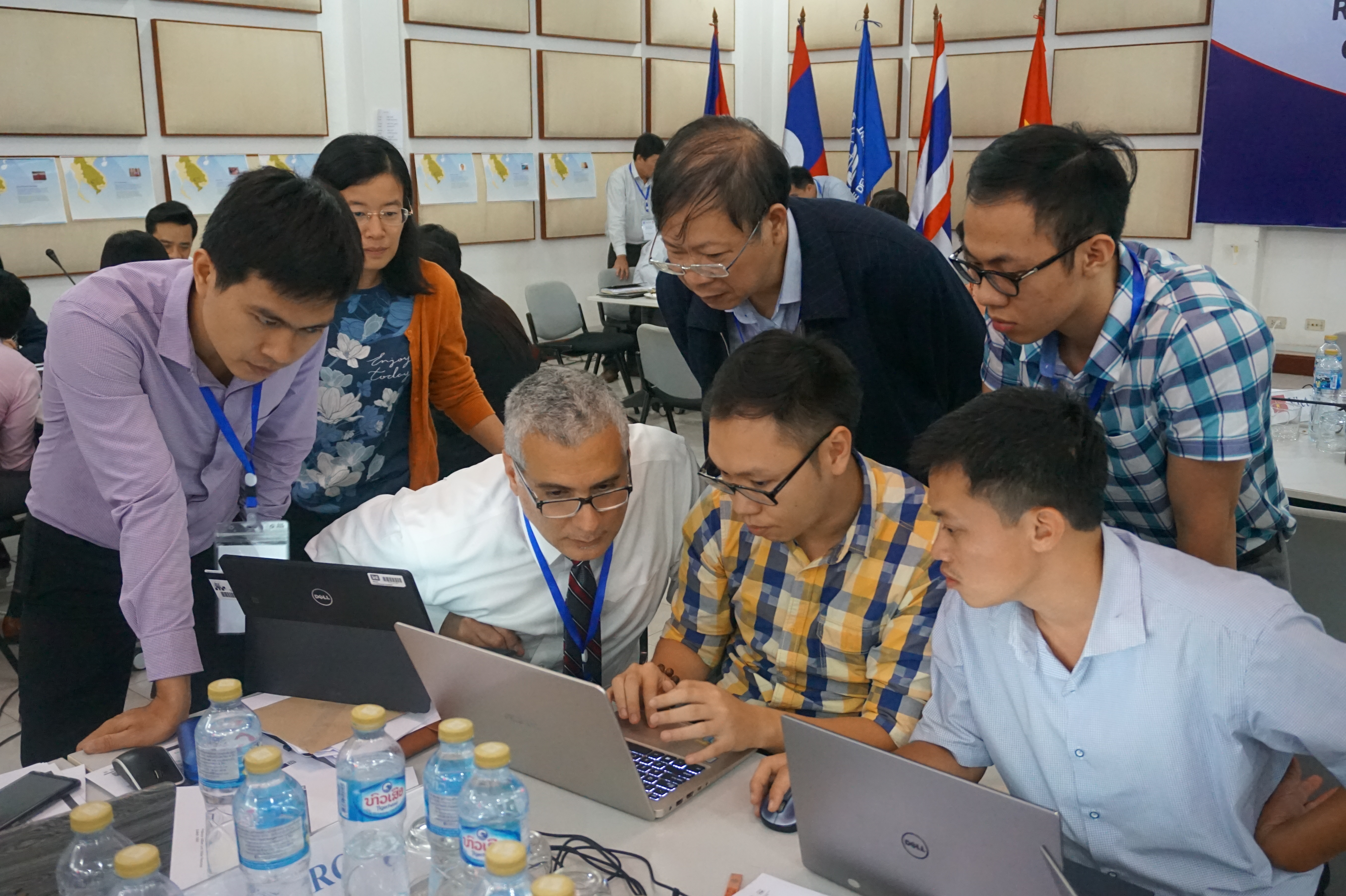Following the Pre-SC meeting, all participants attended the Regional Shared Vision Planning & Collaborative Modelling Training and Workshop which was organized by GWP-SEA in collaboration with MRCS and US Army Corps of Engineers (USACE).
More than 60 participants representing the government official, NGO, private sectors, within the Mekong country and non-Mekong country in the Southeast Asia participated in the training. The objective of this event was to provide training and knowledge ex-change on the concept of shared vision planning (SVP) and collab-orative modelling for decision support, including using data and results from the MRC Council.
The concept of SVP was first introduced to MRC by USACE in 2017. The SVP is a very helpful tool in facilitating the negotiation of economic, social, and environmental trade-off between respective riparian countries. Following the enormous potential use of SVP and collaborative modelling (CM), the Global Water Partnership Southeast Asia offered its support for implementation of these approaches to enhance inclusive water governance and IWRM in one of the transboundary river basin in the region.
Several lessons can be drawn from the SVP and CM process. Firstly, the stakeholders and decision makers were able to identify the common goal/vision which will be the anchor of the collaboration which then followed up by questioning the “what if” questions and explore their ‘gut” feeling of system understanding (responsiveness). Secondly, the model will gain credibility as it developed through a long process of engagement and the “participatory-technical” process that lead to buy-in by all key stakeholders. Thirdly, the model can show its usefulness as it provides information in a way that mattered and was understood by stakeholders and decision makers. Lastly, the whole process in team building will generate trust and ownership as the fragmented knowledge was openly shared for negotiation process which lead to interest-based negotiation rather than position based.
On the next day, a closed session was organized by MRCS and USACE to discuss the potential use of SVP and CM tool to follow up on the MRC’s council study. GWP-SEA and GWPO were welcome as the observed and invited to provide inputs. GWP-SEA in particu-lar propose that it can help to facilitate a wider external stake-holders engagement in every MRC country member through CWPs using SVP tool. Further collaboration is now being explore be-tween the three organizations and is expected to be materialized in 2019. AW


